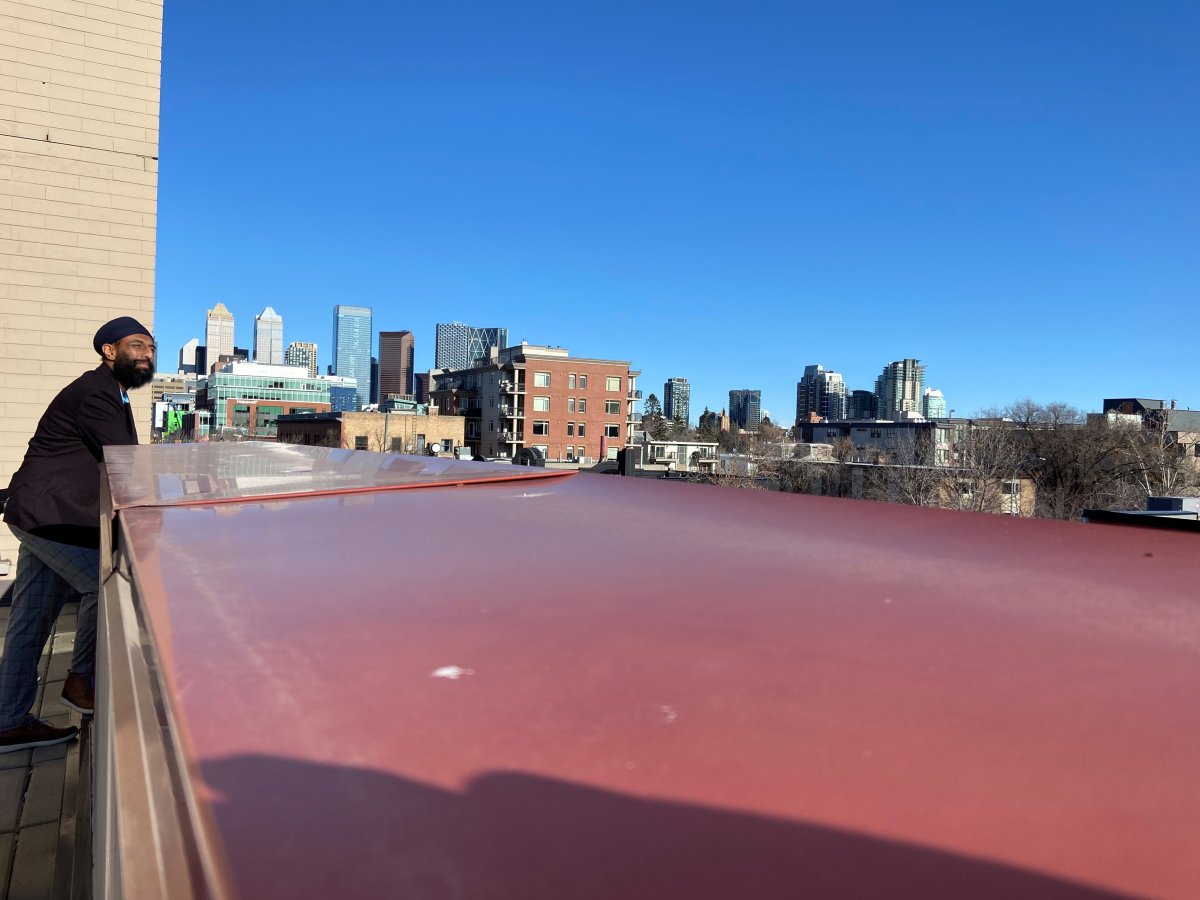Jas Kainth is one of the first patients enrolled in a revolutionary new treatment clinic in Calgary.

The Newly Institute is pioneering a different kind of intensive outpatient program. It supports first responders, health care workers, veterans and others in their journeys dealing with trauma, addiction and pain.
“I’ve dealt with this darkness for 41 years and will continue until my last breath, but there has to be more to this,” Kainth said.
Kainth is bravely sharing a deeply personal past that impacted his profession as a police officer in Calgary. For years he worked with children who experienced physical and sexual abuse.
“I woke up every day, put on my imposter mask and listened to children tell me their deepest darkest and most hurtful secrets.”
“I would say: ‘It’s OK, you’re courageous.’ I would assure them all will be OK but I didn’t believe one single word of the rhetoric I said to these children,” Kainth said.
Those cases triggered Kainth’s own trauma as a sex assault survivor when he was six years old. He endured nearly a lifetime of anxiety and nightmares.
“I couldn’t get over myself or my guilt and shame… Would my colleagues think I was not worthy of this job? Not worthy of being a detective?” Kainth said.
“I soldiered through it. But it hurt.”

After years of stifling his secrets and going through unsuccessful treatments, Kainth said he’s finding hope at Newly.
He’s halfway through a four-week program. Patients go to therapy for four weeks, nearly eight hours a day. It’s designed to get them back to their lives.
“I don’t have the opportunity to run. I’ve thought about it but the program doesn’t allow me to do that,” Kainth said. “There’s people here that care, so I come here every day and my intention is to come back again tomorrow.”
Newly’s Chief Medical Officer, Dr. Robert Tanguay, said the rapid aggressive treatment works.
“The community focus of therapy and the public system often focuses on seeing someone once a week and telling you over time you will get better and it’s true,” Tanguay said.
“But data shows if you crunch that into an intensive program they will be better faster, and data shows the faster they’re better the more likely they are to return to work.”
“When we see one-year and two-year disability leaves, data shows almost zero per cent will ever return to the workforce.”
Tanguay said the public system and years on waiting lists aren’t ideal for those suffering from mental health issues.
“I am not going to change the behemoth of a system.
“I reached out to colleagues across the country who are experts in their field and said: ‘What if we sat down and developed with a magic wand anything we wanted to build,’ and we developed it,” Tanguay said.
Treatments include EMDR (Eye Movement Desensitization and Reprocessing), ART (Accelerated Resolution Therapy), resiliency training, physiotherapy, trauma-sensitive yoga and a weekly drumming circle.
“We have been meeting with people who have lived experience, medical experts, industry leaders, business executives, chiefs of police and senior military doctors across the country, and they are telling us this is what’s needed,” said Arthur Kwan, the president and CEO of The Newly Institute.
“Canadians are struggling and quite simply, they deserve to have another treatment option.”
Psychedelic treatment is a component of this medically managed therapy. Newly is helping to develop clinical research protocols for psilocybin and MDMA.
A former police officer turned politician is endorsing Newly and its approach. Associate Minister of Mental Health and Addictions, Mike Ellis, cut the ribbon to the clinic.
“The evidence is emerging that psychedelic assisted therapy is a promising practice whose time as legitimate therapy in Canada has come,” Ellis said. “Many Albertans especially veterans who suffer from PTSD benefit greatly from this comprehensive support.”
Halfway through his own treatment, Kainth said he’s still working at it but hopes his story inspires others just like him.
“Before I can pretend to make a difference, I have to reconcile that inside and I have yet to do that. It may take the rest of my life but I’m going to try,” Kainth said.
“These feelings of guilt and shame have dictated my life and that has caused me guilt and shame, and this is why I have to do this.”
Newly is hoping to expand opening other clinics in Fredericton, Edmonton, Grande Prairie, Fort McMurray, Red Deer, Lethbridge, Medicine Hat, Lower Mainland B.C. and Ottawa.
The Newly Institute is a private clinic but some patients can be funded by private insurance companies and/or the Workers Compensation Board. They are also accepting patients pro bono.








Comments